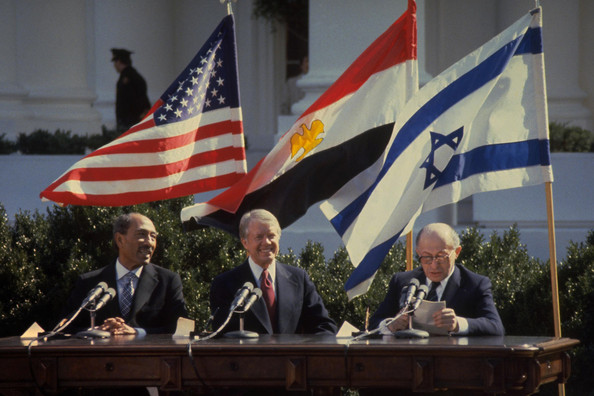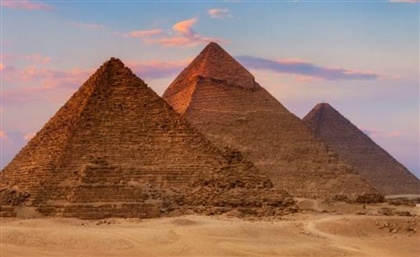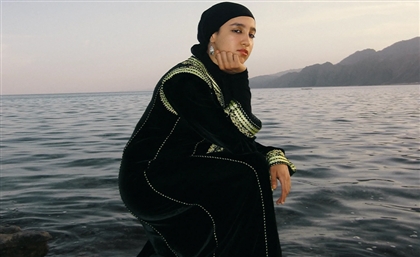When History Deceives You: 6 Facts Egyptians Need to Reconsider
Should history be relative or objective? Should it be written to suit the times or serve a purpose beyond documentation? Here are 6 things in history Egyptians are interested in, but don't have a full grasp of.

There are so many ways to look at history and define what it is. Let’s agree that in the simplest definition: history should be an impartial documentation of actual events without distortion or opinion. Based on that, it would be interesting to address 6 widely held historical beliefs in Egypt.
Ahmed Orabi

Not only is he believed to be a national hero in history books, he also had a ‘novel’ based on his ‘heroics’ taught in Arabic class called The Brave Hawk, where a hawk was narrating the events. But what did Orabi actually ‘do’? Well to cut a long story short, he headed to Khedive Tawfik to make demands for the army. The Khedive in turn told him that he and the army are nothing more than his slaves. This resulted in Orabi starting a revolt which was in turn squashed by the British, and Orabi was exiled to Ceylon (now Sri Lnaka). Then Abbas Pacha (Tawfik’s son) let Orabi come back a few years later albeit a broken man. Legend has it that Orabi got off his horse to be respectful to the Khedive while addressing him. It is worth noting that Khedive Tawfik was a major violator of human rights.
While Orabi’s futile and weak efforts are admirable, they do not make him a ‘hero’. So why is he considered a hero? Because these events were glorified by Egyptian historians. They found very strong significance that Orabi was of a rural and purely Egyptian background in a country run by colonisers, and yet made it up the military ladder. This appealed to Gamal Abdel Nasser in particular, and fit very well with his overt hatred for the aristocracy. A few big words here, and some poetry there, and subtle insertions of a nationalist perception, and poof…Urabi was made into a national hero.
Moustafa Kamel

So what did Kamel do? He was a lawyer who called for independence from British rule, and a journalist who started a newspaper that didn’t last for very long. He also started the Democratic Nationalist Party. He was an amazing public speaker, appealing to the masses via passionately emotional nationalistic statements that don’t really put bread on the table. The most famous of which is “If I weren’t Egyptian, I would have wanted to be Egyptian.” It’s a very romantic sentiment that Egyptians love to repeat over and over but where exactly is the reasonable appeal? There isn’t any, just as Kamel was not a deterministic hero in history. He was just a man, who voiced reasonable opinions that the rest of the population should have had, had they not been stuck with Stockholm Syndrome as they are today. Again Kamel’s story fits with the Nationalist direction Egypt took after the revolution of 1952, and so another hero was conveniently created. It helps a lot that Egyptians by nature love to consecrate people, ideas and events providing a very fertile soil for anyone who wants to direct their thoughts in whichever direction suits them.
The High Dam

Celebrated as if it were the project of the century, with its huge capacity to generate hydroelectricity, create jobs, prevent floods, and provide fresh water for the population, hardly anyone ever mentions the other side of the story. Certainly not school history books. No one mentions the 100,000 Nubians that had to be relocated to god knows where. Nor do they mention the environmental disaster the damn created by ruining agriculture due to compromised soil. Only years later, when you read a lot, do you come across facts that differ from what you were taught. The fact is, the High Dam of Aswan, was a project like any other, with benefits and drawbacks. In Egyptian school history books, it is the gem of glory, the epitome of perfection and civilisation. There is little opposition because anyone who thinks otherwise is somehow silenced, if they have not disappeared off the face of the earth.
The Suez Canal
This feels a bit like crossing a red line but it will be mentioned anyway. The Suez Canal is a brilliant project. Almost everyone agrees on that. It was built by Egyptian labour, governmental history books proudly boast. Not much light is shed on the fact that it was a dirty business deal between an Ottoman occupier and his French friend, the benefits of which were never intended for the Egyptian population. But never mind that, what is interesting is that it is never mentioned that this earth shattering (pun intended) project, was built by committing serious crimes against humanity. Able-bodied men were literally abducted from their homes, lands and families and forced into labour. They were hardly fed, water was scarce, the sun was glaring, and they were whipped to work faster. It is estimated that one and a half million people over the 10 years of excavation were forced into labour, thousands of whom perished on the ‘job’.
The Egypt-Israel Peace Treaty

This is one of the incidents history school books got relatively right. It is a significant accomplishment in a troubled region if we look at it objectively and practically without feelings. However, that is only because the events as they are happen to suit the government in power and its political agenda. In 1967, Israel took over Sinai, in 1973 the Egyptian army got it back. After a lot of negotiations back and forth over years, a peace treaty was signed with compromises on both sides. Egypt was then (and still is) considered a traitor by the rest of the Arab world, and kicked off of the (useless) Arab League. A lot of historians like to speculate that the 1973 war was staged, and the treaty, pre-planned amongst Egypt, the US, and Israel. It is interesting to point out that these conspiracy theory historians are usually related to the Muslim Brotherhood, or Communists, both of whom were arch enemies of Sadat. Imagine the Muslim Brotherhood had stayed in power, can you imagine the different ‘historical facts’ that would have been taught eventually at school? Sadat’s assassin would have been hailed a hero and a martyr who deposed of a traitor. And the story would then have taken a different shift. So you see how malleable history can be?
The Revolution of 25 January 2011

Although it happened only four and a half years ago, it is already subject to historical controversy. You might have noticed that facts about the revolution keep changing in a volatile manner. A person is a hero one day, and a traitor the next. This is not surprising. It is natural that in the struggle for power and survival, politicians will distort facts to suit their agenda. What is shocking though, is that the civilian population seems to buy the distortions regardless of their comic nature, and to make things worse, they add their own distortions in spite of videos, pictures, and live time social media coverage circulating widely. Widely held beliefs range between El Baradei being a spy/double agent/traitor/illuminati, to the youth, activists, human rights organisations and journalists who are also traitors being funded by some third party or another that wants to unsettle the ‘stability’ of the region. “They did it for a KFC meal!” is one widely held conviction about those who sat in at Tahrir for 18 days risking their lives. That indeed is a reasonable explanation…what more would a human rights or civil rights activist want than a Dinner Box every day? It is the ultimate dream, worthy of going down in history. Satire aside, it is confusing how people celebrate 25th of January but condemn everything it stood for, and made heroes of those who completely ruined it by killing some and sending the rest to prison under false charges to fill in the paperwork.
What will the Ministry of Education history books say 20 years from now? Will the Maspiro massacre get any kind of mention? Will the Rab’aa incident be recorded as a massacre or as self defense? Will they speak of the Military Trials? Will the judge who sentenced over 500 people to death be listed as a national hero? Or will he be listed as a corrupt psycho? So many questions, and only one answer is certain; people will take to the streets on 25th January, they will play with fireworks, wave the Egyptian flag, and dress their kids in army uniforms. And the only thing anyone will care about being mentioned in school history books, is that they need to learn it all by heart to score high grades to get into whatever prestigious university takes the highest score at that time.























